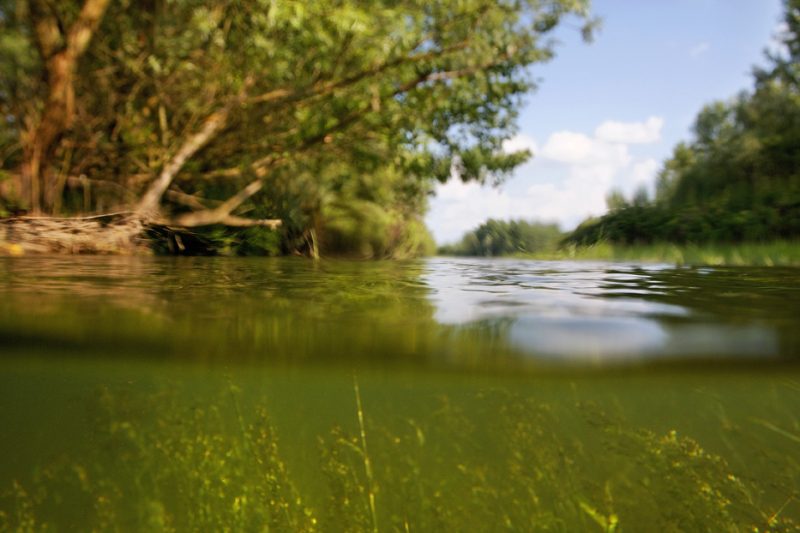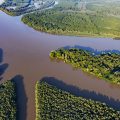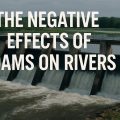Why are wetlands important to maintain good water quality in rivers?
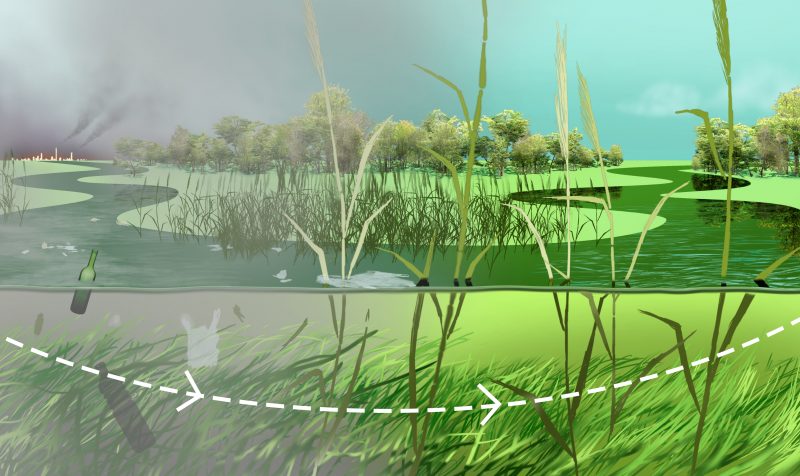
Wetlands act as nature’s water filters. The Ecological Society of America estimates that they can remove up to 60 percent of the metals in water and up to 90 percent of the sediment from urban and agricultural runoff.
Rivers are complex systems. The water is circulating not only through the main channel, but also laterally in the floodplain and is in contact with the underground water where we tap the water for drinking. So, polluted water in the river is dangerous for humans too.
During floods, the excess water spills over river banks or is channelled through side-branches deep in the floodplain, where it exists naturally. This water then fills the depressions, staying for weeks, even months. During big floods, it can fill the forest too. This is Danube floodplain (Kopački rit Nature Park in Croatia) during the flood:
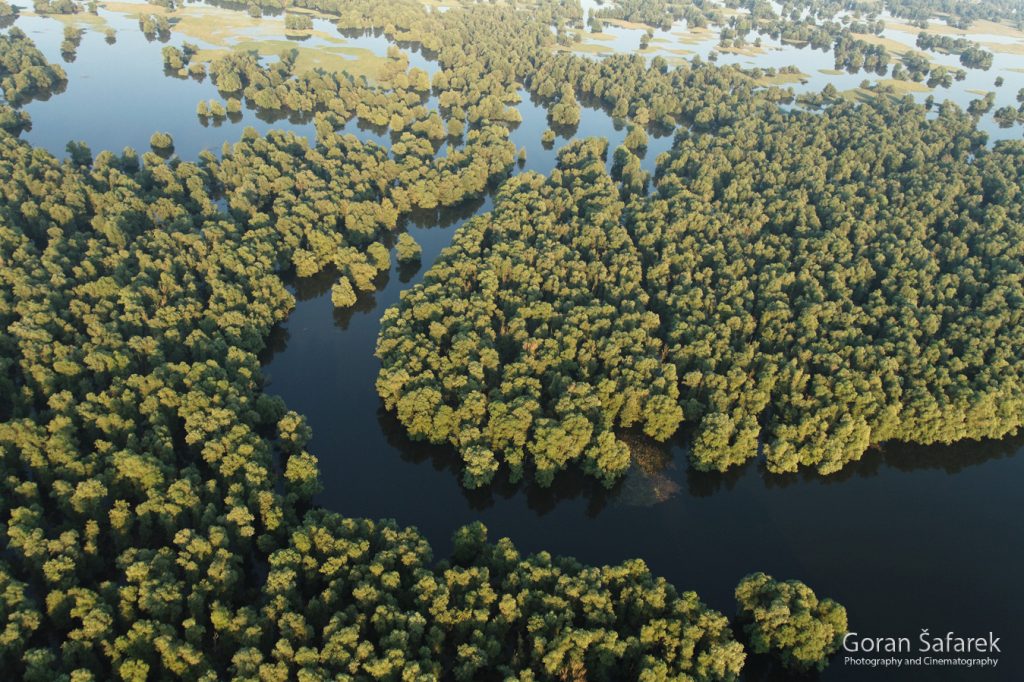
Water is in the contact with the plants and microorganisms. Bacteria and soil micro-organisms further purify water naturally by breaking down contaminants so they are no longer harmful. Also, for its growth, these organisms use the nutrients from the water, organic molecules that cause the pollution (organic pollution, there are other types of the pollution too). In this way they are purifying the water.
Also, some other pollutants are being trapped here, through natural sifts like sand or gravel. All this time, such purified water is slowly filling the underground aquifers.
Flooded areas, wetlands, are extremely useful to humans, beside being centres of the biodiversity. They are natural storage of the flood water, they are spawning sites for fish, they purify the water, they are tourist attractions and many more functions.
